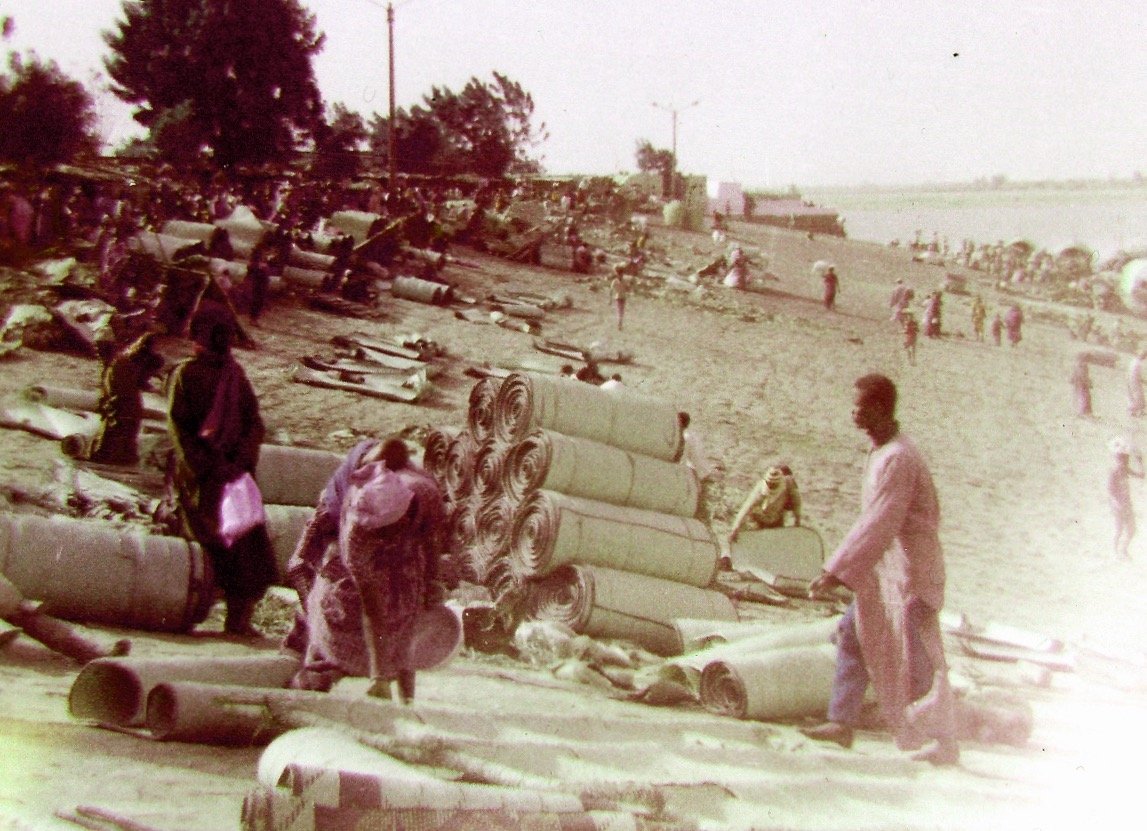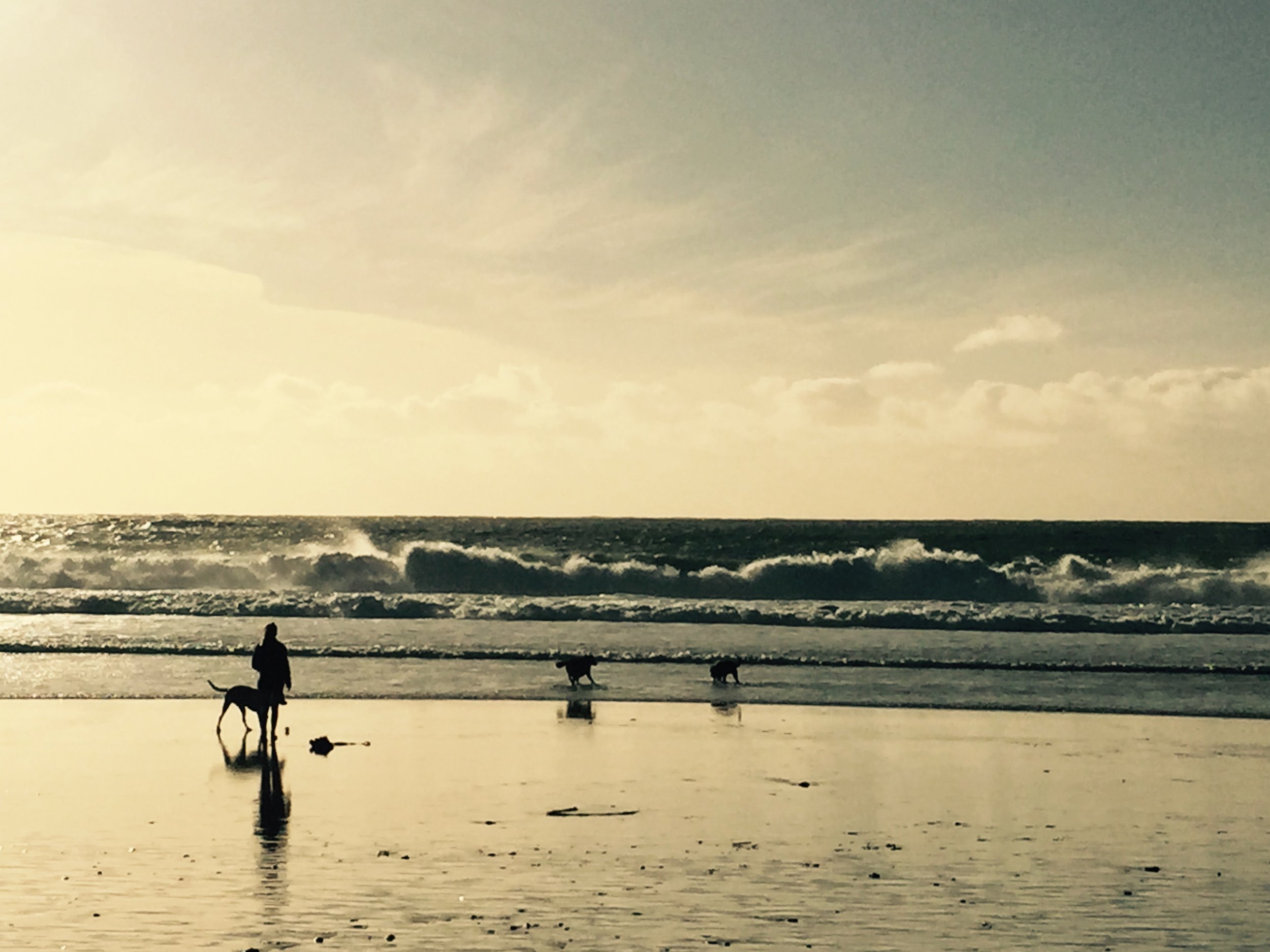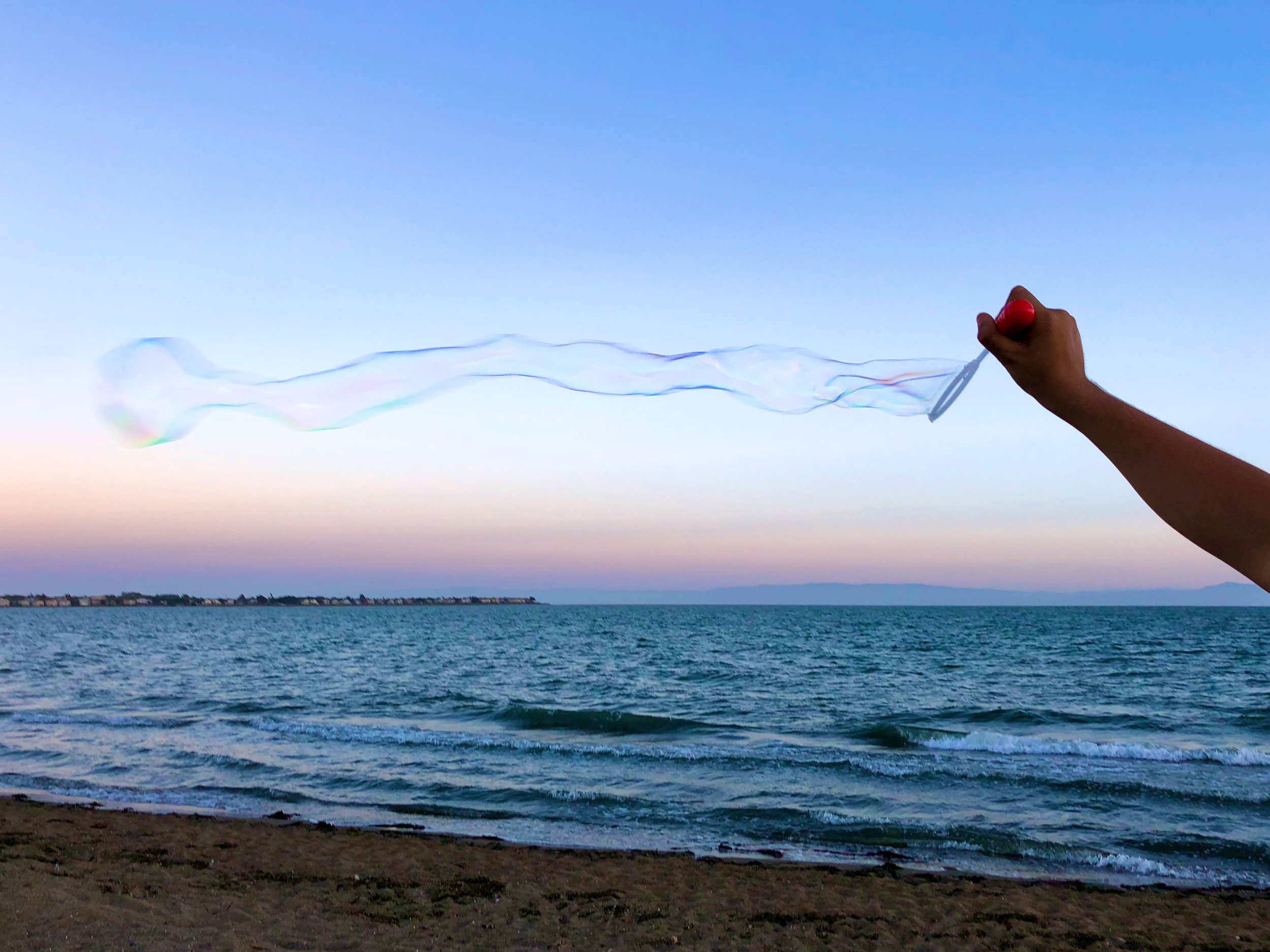Of Sweethearts and Sperm Banks: A Twenty-First Century Love Story
I’ve dreamed you for so long, I can hardly believe you’re with me now. Yet here you are: a tiny human voyager, sleeping off the shock of migration. I want to gather up joy and lay it at your feet, to banish grief to an island so remote that it can never find you. Instead I give you this world in all its glorious, startling detail. One day you’ll ask me how you got here. When you do, I’ll tell you this story.
- Prologue of my play, Baby Taj
On May 10, 2001, I sat on a mountaintop near Dharamsala, India, watching the last rosy gleam of the sunset reflect off the snowy peaks of the Himalayas, and made a decision. Throughout my adult life I’d boldly proclaimed to anyone who would listen that if I found myself 35 years old and single, I would have a child on my own. Yet for all my bravado, I’d never imagined that day would come. Now my 35th birthday loomed large, and I was, in fact, unpartnered. Blame it on the writer-slash-actor’s peripatetic lifestyle, excessive pickiness, a volatile emotional temperament, or just plain bad luck: my intimate relationships had not panned out as I had hoped.
In the wake of a recent string of disastrous romances, I’d fled to India in early March for some serious soul-searching. After two months of packed trains, magnificent temples, guru-seeking travelers, and sweltering meditation halls, my mind was no closer to finding peace. Then, in a single glorious day, I shook hands with His Holiness the Dalai Lama, climbed six hours up a stony trail, watched the sunset reflected off the Himalayas, and reached a decision. Perhaps it was the simple clarity of His Holiness’ gaze that led me to it, or the thin, pure mountain air. Or perhaps it was just my time. Whatever the trigger, as the moon rose cold and bright over the Himalayas, the choice before me became breathtakingly clear. I could continue pining after the life I’d always imagined I would have—the one in which I was happily married by now—or I could embrace the circumstances of my actual life and get on with things. I chose to embrace.
My home base back in the States was a close-knit community of three other women and a dog, with whom I’d shared a house for the past seven years. One of my roommates—a dear friend— was close to my age and longed for a child with as much fervor as I did. She was a lesbian and I was mostly straight, but we were both in the same position: single and aching with mamalust. We had often discussed the idea of both getting pregnant through artificial insemination, coordinating our schedules around shared childcare, and raising our children in the loving environment of our San Francisco home. When I returned home from India in June, I told her I was ready to commit to our plan.
Friends and family urged me to reconsider—after all, women are having first children well into their forties these days— but the more I thought about it, the more convinced I became that I was making the right choice. I felt as though everything else in my life was filler, using up time until I could move forward with the one thing I really wanted: raising a child. This wasn’t a permanent goodbye to romantic life, I assured them. If anything, I’d be able to date in a more relaxed way when the subtext of my every sentence wasn’t “want baby now.” Rather than acting out of desperation, I was taking a powerful step toward defining my own life.
Valentine’s Day, 2002, was my target date. If my cycle followed its usual course, I would inject myself with the first vial of anonymous donor sperm on the day dedicated to Cupid, the mischievous vixen of love. It seemed a fitting date to begin what I hoped would be a life-long love affair with my child.
In January, I purchased four vials of sperm belonging to two separate donors. Although choosing a person I’d never met to donate half of my child’s genetic material was nerve-racking, the selection process was no shot in the dark. The thick donor catalog provided more information about these men than most people know about their spouse on their wedding night.
My criteria were fairly simple. The first thing I looked for was intelligence. Though I knew it wasn’t a fool-proof indicator, I looked for a GPA of 3.5 or higher, coupled with good spelling, grammar, and vocabulary throughout the application. Beyond that, I wanted creativity and well-roundedness: foreign languages, musical instruments, and other artistic pursuits were a plus. Things like warmth and compassion were important too, of course, but those were harder to spot, and who knew if they were genetic anyway? Still, I spent hours poring over the documents, trying to glean personality traits from handwriting, word choice, and the answers to questions like “Why do you want to become a donor?” My first-choice donor was tall, dark and—according to the clinician who interviewed him—handsome, the oldest son of a Spanish mother and Italian father. He was a medical internist in his twenties for whom the extra $60-120 a week (depending on whether he came in once or twice) was a quick and easy way to help defray the high cost of living in the San Francisco Bay Area. He played piano, guitar, and drums, and spoke fluent Spanish, English, and French. His GPA was 3.8 and his family medical history showed no cause for alarm. He described himself as genial and even-tempered, though slightly shy when getting to know someone. I wished I could get a date with him instead of just a shot of his DNA.
Unfortunately, I wasn’t the only would-be mama who’d noticed this guy’s assets. When I called to purchase his sperm, only two vials remained. I’d hoped to get four, in case it didn’t take right away, but alas, he had left the program and would make no further donations. I snapped up his last two vials and set about finding an alternate candidate.
There was an amiable Portuguese screenwriter whose parents were both dancers. There was an undergraduate Eastern European physicist with a penchant for classical music whose response to the question of why he became a donor—“I’ve got nothing better to do with my semen at the moment; I’m in a long-distance relationship”— endeared him to me immediately. And then there was a Korean-American computer programmer whose heart’s desire was to travel to Greece, “to follow in the footsteps of Odysseus.” This last one stood out for the originality of his responses. In tiny, controlled handwriting, he made his droll, faintly ironic disposition felt in every line of the application. I felt I would have had a crush on him had he been sitting next to me in class. I dubbed him Odysseus and ordered two vials of his sperm.
Three weeks before my planned insemination, I received an e-mail from a man named David. David and I had been in sporadic contact for about three years, since he’d attended a performance of mine with a mutual friend. I’d met him for about thirty seconds backstage, and I vaguely remembered a bespectacled intellectual type with a shy, lopsided grin. He’d e-mailed me that same night to tell me how much he enjoyed the show, and as I do whenever I receive correspondence of that kind, I’d promptly placed him on my mailing list for the duration of his (or my) natural life.
Over the next three years, whenever I sent out a performance announcement, I got an e-mail back from David. He lived in Washington, D.C., and traveled constantly, organizing eye care programs in developing countries and setting up manufacturing to make medical products affordable for developing country economies. His e-mails invariably came from some far-flung corner of the globe and said something to the effect of: “Wish I could see the show, but I’m in Malawi setting up an eye camp to treat 2,000 people with cataracts.” I was intrigued, and after a few years of this sporadic correspondence, I suggested to David that the next time he was in California, perhaps we could meet for tea.
I was performing in San Diego when I received his e-mail telling me he was in the state. It turned out he was going to be in San Diego for a single day the following week. Since his daytime schedule was full, we decided to meet for dinner.
Let the record show that I had absolutely no ulterior motive for dining with this man. I could barely remember what he looked like! Furthermore, I was absolutely determined that nothing should stand in the way of my planned insemination. In the eight months since I’d made the decision to have a baby, I’d already been sidetracked by no less than three short-term dalliances with men. In each case I’d plummeted headlong into an apparently promising relationship and postponed my insemination, only to have it crash and burn a few weeks later. I wasn’t going to let it happen again..
At seven p.m. I opened the door of my apartment to a disheveled dark-haired man with wire-rimmed glasses and a sweet, self-effacing grin. We walked through the lively downtown streets of San Diego chatting about the joys and challenges of developing world travel, until our growling bellies propelled us into a dimly lit Italian restaurant with red-and-white checked tablecloths and Coke-bottle candleholders covered in melted wax.. When I suggested wine, he asked me the difference between white wine and chardonnay.
“You’re kidding,” I said.
“No,” said he.
I cocked an eyebrow skeptically.
“It’s a type of white wine. You can share my glass if you’re not ready to commit to your own.”
We each had a glass of chardonnay, split a salad and a couple of dishes of pasta, and followed it up with a whopping slab of tiramisu that we couldn’t half finish between the two of us. At some point in our far-ranging conversation, I mentioned that I planned to curtail my travel for the next couple of years because of a personal project I was working on that would keep me close to home. When he asked what the project was, I coyly responded that I wasn’t at liberty to say.
My favorite moment of the night occurred while David was removing his sweater—a bulky black wool number with orange snowflakes, which he’d purchased in Norway. It was half-on half-off, his shirt rising with it and exposing a slice of furry abs, when the waitress came by and asked if we were ready to order. He froze that way, sweater mid-air, one arm above his head, and gave her that sheepish, caught-in-the-act grin. It was, I’m afraid, almost unbearably cute.
Do you think any carnal activity took place that night? Well, you’re wrong. I stuck to my resolve, and we parted without so much as a butterfly kiss. We did, however, hug goodbye and then stand in the lobby of my apartment building gabbing for a while before parting with a second hug. It was the second hug, David says, that gave me away. With that second hug, he says, he knew.
The next morning I received an e-mail from David saying that he’d had a great time and I was a wonderful being. I wrote back saying I’d had a good time too, and too bad he didn’t live in San Francisco. The next morning I got another, longer e-mail, saying he loved the Bay Area and had often felt it was the part of the country in which he felt most at home, and by the way he had some vacation time coming up. I wrote back saying, great, you’re welcome to visit, but given your transient lifestyle I don’t see this turning into a deeper, shall we say, involvement.
The next day I received a long response saying that he knew that his constant travel had contributed to the demise of his marriage the previous year, and that since he deeply desired a committed relationship, he was eager to change his lifestyle.
That night I couldn’t sleep. I was enough of a veteran of the dating wars to know that the words “I want to change” uttered in the courtship phase of a relationship were the romantic equivalent of a deed to a bridge in Bora-Bora. And yet there was a sincerity to this David that I couldn’t ignore. Furthermore, he was just the sort of person I’d always imagined myself with. In addition to being smart, cute, sweetly nerdy, and quirkily funny, David was committed to the world. He had a passion for helping others that manifested in large-scale, meaningful ways. And then there was that sweater moment.
I rolled around in my queen-sized bed, flipping the pillows this way and that. How do I always manage to conjure up this particular brand of self-torture? I wondered. I have a plan; why can’t I stick to it?
At 5:30 a.m.—8:30 East Coast time—I called. David was in New York City attending the World Economic Forum, and I wanted to reach him before he left for the morning session. I got his voicemail and left a terse message: “We have to talk.”
Half an hour later my phone rang. We talked for four hours, while his sessions and meetings slipped by. He confided that he’d thought of me often since the time we’d first met. When his marriage dissolved the previous year, he’d wanted to get in touch, but until this week he hadn’t had the nerve. When I told him the nature of my “personal project,” his response was immediate. "I’m a walking sperm bank,” he said. “I’m practically swimming in sperm.” David’s ex-wife had been unable to have children, and he had accepted the prospect of a childless life. Since their separation, however, the idea of having children had opened up for him. For the first time, he’d felt a tug, as though somewhere out there a voice was calling.
We determined that day that we would have children together. A week and countless phone hours later, he asked me how I felt about marriage as a general concept. I told him I didn’t really care that much one way or the other, and he said he didn’t either. Then a few minutes later I said that, if I were honest, I probably would prefer to be married, and he said so would he.
For a while we reminded each other that our plans were only a fantasy until we’d spent more time together. But as the days passed, it became harder and harder to keep that in mind. With each conversation our connection felt more real. Though I wasn’t trashing my vials of sperm just yet, I decided to postpone the insemination once again.
When I returned to San Francisco and told my roommates I was engaged, they looked at me as if I’d joined the Moonies. What’s amazing to me is not that David and I made these decisions so quickly— God knows I’d made rash pronouncements before while under the narcotic influence of my romantic imagination— but that we actually turned out to have the right combination of chemistry, compatibility and commitment for the relationship to endure. David explains that he went about our relationship the same way he goes about his work: He began with intuition, created an assumption, then gathered data to test the assumption. On the night of our third meeting, a month after that fateful San Diego dinner, we greeted each other at the airport with an awkward hug and couldn’t figure out what to do with our hands. That night, we split the better part of a bottle of merlot (“a type of red wine,” I explained), and tested our chemistry on a futon couch of his D.C. apartment. Fortunately, the data was good.
Last month I was walking on the beach in Carmel with David and Tavi, our four-month-old son. David and I walked a few feet apart, absorbed in our thoughts, less like newlyweds than two people who have grown easy with each other. He carried the sleeping baby around his neck in a sling. The pale sun glanced brightly off the corrugated ocean and the flat expanse of near-white sand. My body remembered the countless hours I had walked alone on the beaches, roads, and pathways of this world. For a moment I had the distinct sensation that I had slipped sideways out of my life and into someone else’s—that I had somehow eluded the storyline that should have been mine. It was a bittersweet sensation, and I took a moment to salute my phantom double: that solo traveler who shadows me still.
Had David not come into my life, I would have become a parent in a less traditional way. Had that come to pass, I’m sure my delight at the miracle of motherhood would be equally profound. My life would have been harder, no question, but I would have made it work. My former roommate has a one-year-old boy, and mother and child move through the world in a bubble of radiant love. Although being a single mother is challenging, she enjoys the strong support of a tight-knit community of friends, of whom I am proud to be one.
And so the moral of this story, as I see it, is not so much buy the sperm, and the man will come, as it is take a stand for your own happiness, and you can’t lose. As I lie in bed at night, nestled against the warm curve of my husband’s back, I marvel at how, once I made my choice, the universe seemed to rise up and meet me in mysterious ways. What I feel then is gratitude—tremendous gratitude—that I was able to muster the courage to take a step toward my deepest dream while still staying light enough on my feet to follow the path when it took a most unexpected turn.
If you enjoyed this story, you might also enjoy The Silver Revolution (in which I use the decision to stop coloring my hair as a window into reflections on aging, mortality, and cultural pressures on women’s appearance), Paint Your Scars With Gold (in which I reflect on the challenges of a long-term marriage), and The Me Who Stayed (about my journey with depression).
Are you longing to explore your life through words? Off-Leash Writing Workshops provide a nurturing creative environment for your stories to emerge. And if you’ve got some drafts lying around that you’re looking to polish, the Memoir/Fiction/Personal Essay Workshop provides vigorous, constructive feedback to help you take them to the next level. Join us!








